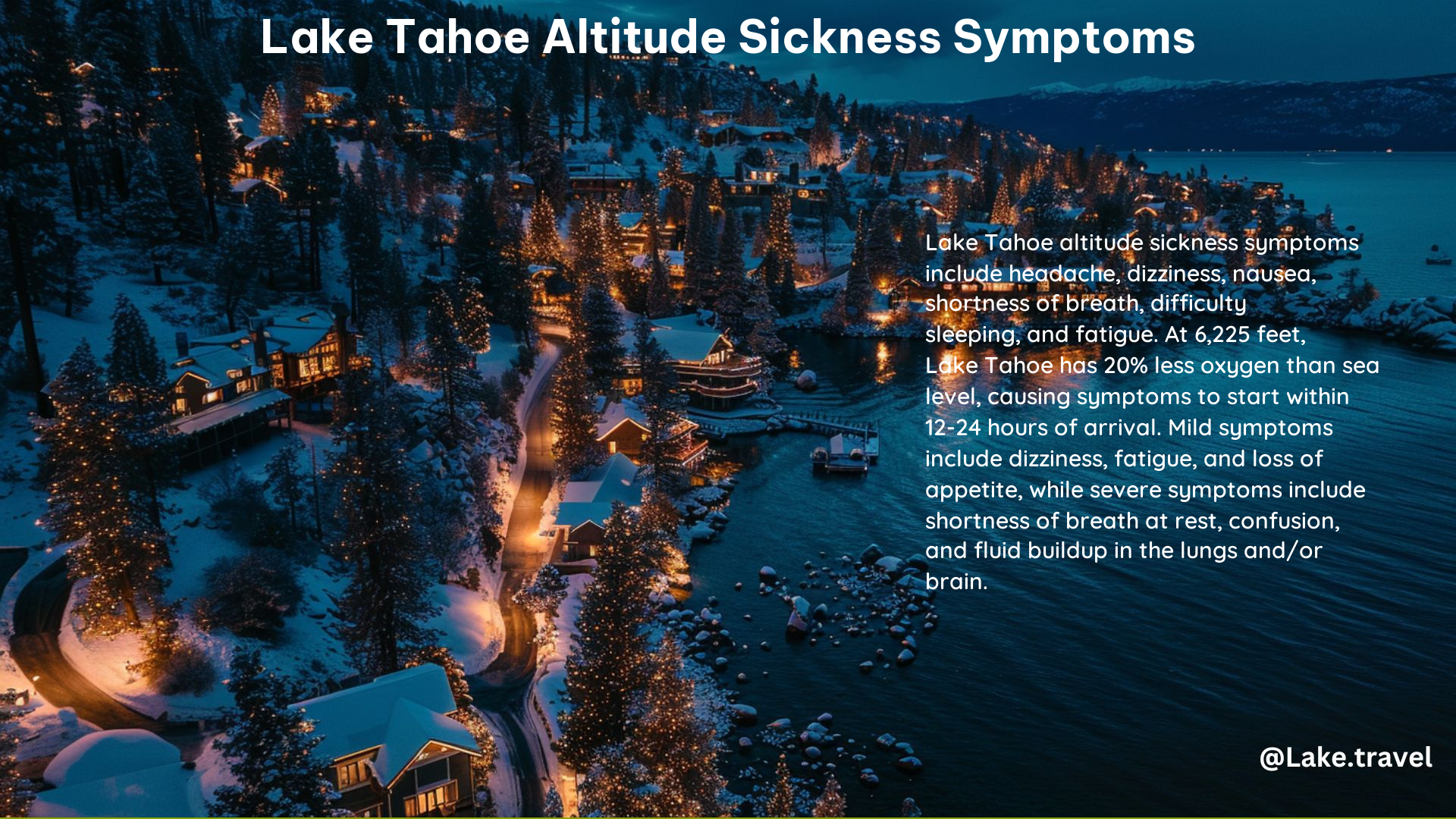Lake Tahoe, situated at an elevation of 6,225 feet above sea level, poses a significant risk of altitude sickness for visitors. Understanding the symptoms and taking preventative measures can help ensure a safe and enjoyable trip.
Common Symptoms of Altitude Sickness
Altitude sickness, also known as acute mountain sickness (AMS), can manifest in various ways. The most common symptoms of altitude sickness at Lake Tahoe include:
- Headaches: One of the most prevalent symptoms, often mild but can be severe.
- Dizziness: Feeling lightheaded or disoriented.
- Nausea and Vomiting: Stomach upset and vomiting can occur.
- Fatigue or Loss of Energy: Feeling unusually tired or weak.
- Loss of Appetite: Decreased interest in food.
- Shortness of Breath: Difficulty breathing, especially during physical activity.
- Difficulty Sleeping: Insomnia or disrupted sleep patterns.
- Confusion: Disorientation and confusion can occur in severe cases.
- Fluid Buildup in Lungs and/or Brain: Severe cases can lead to fluid buildup in the lungs and/or brain, which is a medical emergency.
Preventative Measures

To reduce the risk of altitude sickness at Lake Tahoe, it’s essential to take the following preventative measures:
- Hydration: Drink plenty of water to combat dehydration, which can exacerbate altitude sickness symptoms.
- Gradual Acclimation: Allow your body time to adjust to the high altitude before engaging in strenuous activities.
- Healthy Diet: Focus on complex carbohydrates, fruits, and vegetables to help your body use oxygen more efficiently.
- Pace Yourself: Avoid overexertion and take regular breaks to rest and recover.
- Avoid or Limit Alcohol: Be cautious with alcohol consumption, as it can worsen altitude sickness symptoms.
- Get Enough Sleep: Prioritize quality rest to help your body acclimate to the reduced oxygen levels.
Additional Tips
- Consult a Doctor: If you have a history of altitude sickness or other health concerns, consult a doctor before visiting Lake Tahoe.
- Monitor Your Body: Be aware of your body’s response to the high altitude and seek medical attention if symptoms worsen or persist.
By understanding the common symptoms of altitude sickness and taking proactive steps to prevent it, you can enjoy your Lake Tahoe adventure safely and comfortably.
References
- Tahoe Adventure Company. (2016, March 23). Tips to Avoiding Altitude Sickness. Retrieved from https://tahoeadventurecompany.com/blog/tipstoavoidingalti/
- Zaca. (n.d.). 3 Tips To Prevent Lake Tahoe Altitude Sickness. Retrieved from https://zacalife.com/blogs/blog/3-tips-to-prevent-lake-tahoe-altitude-sickness
- Travel Tahoe. (2024, March 3). Tips To Prevent Lake Tahoe Altitude Sickness. Retrieved from https://www.traveltahoe.com/tips-to-prevent-lake-tahoe-altitude-sickness/
- Explore with Cassie. (2019, May 15). Watch Out for Altitude Sickness in Sparkling South Lake Tahoe, Nevada. Retrieved from https://explorewithcassie.com/2019/05/watch-out-for-altitude-sickness-in-sparkling-south-lake-tahoe-nevada/
- Berkeley Parents Network. (2009, March). Altitude Sickness. Retrieved from https://www.berkeleyparentsnetwork.org/advice/going/altitude.
